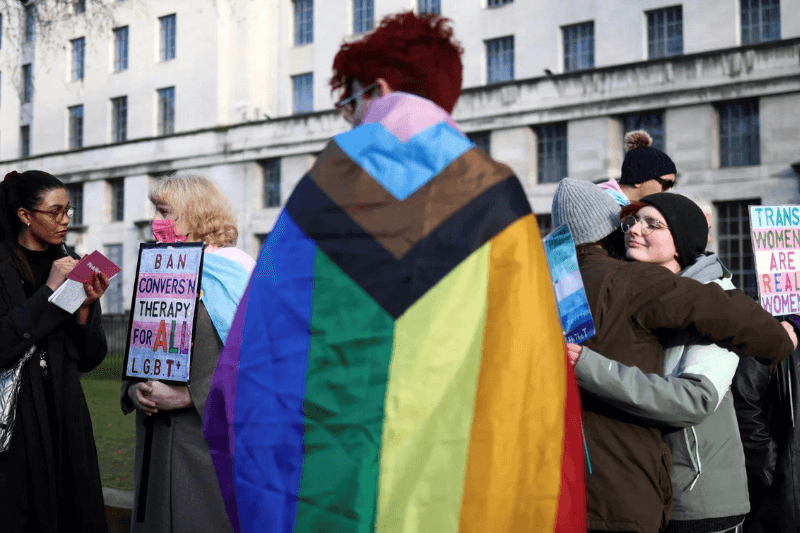
Public Opinion in Focus: Unpacking the Scottish Gender Reform Debate
Decoding the Legality of the UK Government’s Block on Scottish Gender Reform
In a significant legal development, judges have upheld the UK government‘s decision to block Scotland’s gender self-identification reforms. The ruling, issued by the Court of Session in Edinburgh, has sparked intense debates about the implications for gender rights, equality laws, and the broader devolution landscape.
Background of the Legal Battle of the Scottish Gender Reform Debate
The legal saga began when the Scottish gender reform debate was raised in Parliament and passed legislation facilitating easier changes to legally-recognized gender. However, the UK government intervened, expressing concerns about potential conflicts with equality laws applicable to Great Britain. This move triggered a legal challenge from the Scottish government, leading to a landmark decision from the Court of Session.
The Court of Session, in a comprehensive ruling, deemed the UK government’s action lawful, rejecting the Scottish government’s challenge. This decision, while settling the current dispute, raises questions about the limits of devolution and the power dynamics between Westminster and Holyrood. The implications extend beyond the specific gender reform issue, touching on the broader constitutional framework.
Scottish Government’s Dilemma
Following the court’s decision, the Scottish government faces a critical juncture. With a 21-day window to decide on an appeal, the potential escalation of the case to the Supreme Court adds another layer of complexity. The delicate balance between devolution and centralized power comes into sharp focus, posing challenges for policymakers in Edinburgh.
Keep Reading
Political and Social Ramifications
The legal battle over gender reform has not only legal but also political and societal implications. The cross-party support for the legislation in Holyrood underscores the divisive nature of the issue. Campaigners and critics alike have raised concerns, with arguments ranging from potential risks to women’s safety to the need for streamlined gender recognition processes for trans individuals.
Analysis of Legal Arguments
The crux of the legal dispute lies in the interpretation of section 35 of the Scotland Act, which grants Westminster the authority to block legislation impacting reserved matters. Scottish Secretary Alister Jack’s invocation of this power, citing concerns about the 2010 Equality Act, sets the stage for a nuanced exploration of constitutional principles and legal procedures.
In her written ruling, Lady Haldane of the Court of Session emphasized the legality of Mr. Jack’s decision, asserting that correct legal procedures were followed. The judgment delves into the intricacies of constitutional frameworks, highlighting the complexities surrounding section 35 and its role in the separation of powers.
Political Responses in UK
The political fallout from this legal battle has been swift, with Scottish Secretary Alister Jack welcoming the verdict. On the contrary, Humza Yousaf, the Scottish Justice Secretary, characterized the judgment as a “dark day for devolution.” The broader discourse on Scottish sovereignty, independence, and the role of Westminster in Scottish affairs gains prominence in the wake of this ruling.
Future Prospects and Public Opinion
Public opinion becomes a significant factor as the Scottish government contemplates its next move. The diverse perspectives on gender reform, devolution, and constitutional matters will likely influence the discourse. The role of legal experts, activists, and political leaders in shaping public perception adds another layer of complexity to an already multifaceted issue.
In conclusion, the legal validation of the UK government’s block on Scottish gender reform sets the stage for a nuanced exploration of constitutional boundaries, devolution dynamics, and societal attitudes toward gender rights. The interplay of legal arguments, political responses, and public sentiment shapes the narrative of this complex and evolving legal saga.




